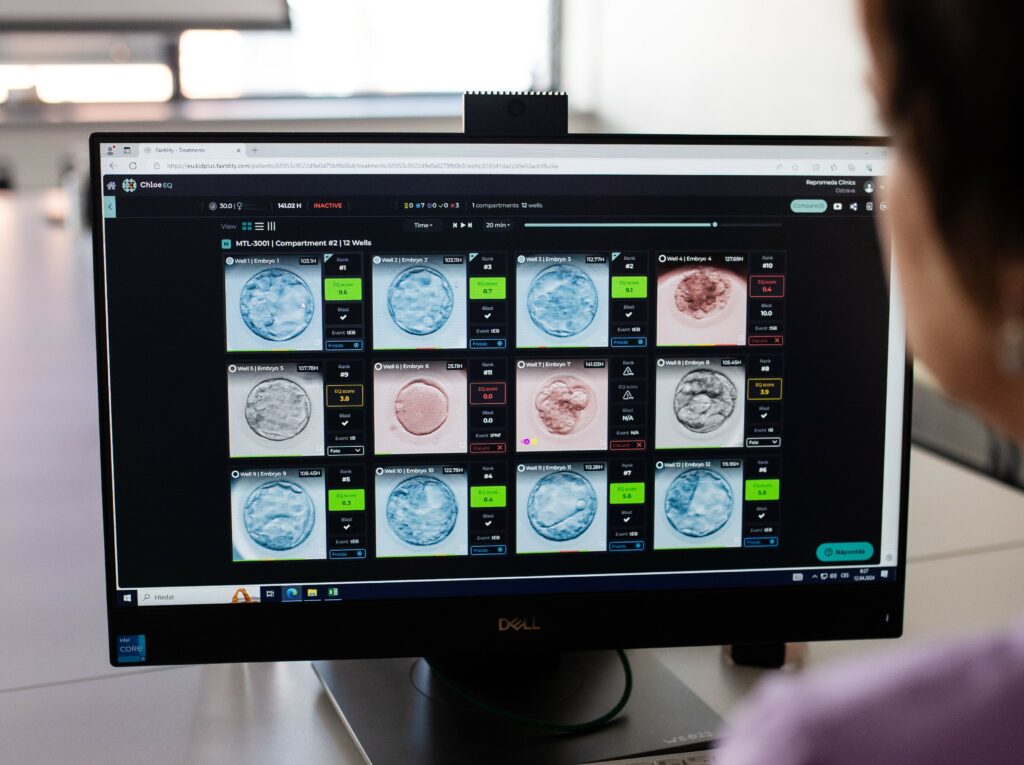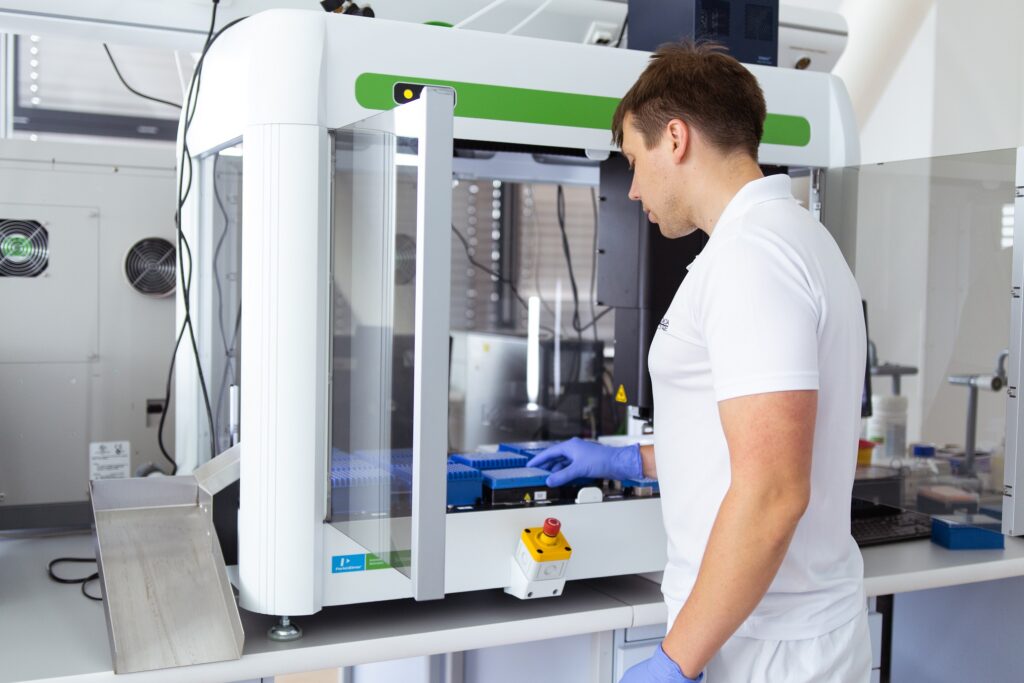Artificial intelligence is opening up new possibilities in selecting the most suitable embryo and taking us one step further in infertility treatment. We offer our clients a new innovative tool, Magenta-AI™, which combines advanced genetic testing (PGT-A+) and artificial intelligence (Chloe). This tool provides embryologists, IVF specialists and geneticists with invaluable and accurate information for making decisions about embryos before they are transferred to the uterus. Magenta-AI™ streamlines the journey to the baby we want, which is our daily goal.
A revolution in IVF: How is Magenta-AI™ transforming the future of treatment?
In our clinic, miracles begin in two laboratories – embryology and genetics. In the embryology lab, we create a new life – an embryo – by merging an egg and a sperm. While in the genetics lab, we test several cells of that embryo to detect various genetic diseases that can lead to miscarriages or significantly affect the fertility of women and men. By combining these two areas with the addition of artificial intelligence that can evaluate vast amounts of data in a short period of time, we have created a revolutionary technology called Magenta-AI™ (Magnifier of Genetic Testing for Aneuploidies Plus Artificial Intelligence).
Chloe – artificial intelligence (AI) in the embryology lab
The new software in our embryology lab, Chloe (Cultivating Human Life through Optimal Embryos), is a sophisticated system that tracks embryo development and compares it to a model of the ideal embryo. Chloe greatly assists in the comprehensive evaluation of embryo quality and viability and determines an EQ score that predicts the likelihood of embryo nesting. This system provides embryologists with the basis for expert decision-making.
We have had cameras in place for several years in the incubators (MIRI-TL) where the embryos are stored, which take time-lapse video recordings of development. These recordings allow us to follow the entire process from the moment of creation until the embryo is ready for transfer or freezing. Now, all of this detailed data is being entered into Chloe, allowing detailed tracking and comparison of embryos based on data from hundreds of thousands of IVF cycles. In this way, embryos are analyzed and ranked with maximum objectivity.

PGT-A+ – improved aneuploidy testing in the genetics lab
In the genetic lab we have introduced a new innovation in preimplantation testing of aneuploidy in embryos, which we call PGT-A+ (PGT-A PLUS). This method is a significant improvement on traditional genetic testing for aneuploidy (PGT-A) and is used to detect polyploidy and more reliably distinguish mosaicism. PGT-A+ provides a more detailed view of the embryo’s genetic information, allowing more embryos to be obtained for transfer and to determine the origin of aneuploidies – whether these chromosomal variations are from the father or the mother. This information is crucial when deciding whether to accept a donated egg or sperm.

Who is Magenta-AI™ suitable for?
Magenta-AI™ is ideal and brings hope to all couples:
- who want to increase the success rate of IVF treatment.
- who find it difficult to obtain sufficient quantities of good quality eggs and subsequently embryos.
- who face repeated failures in embryo attachment after embryo transfer.
- who use donated eggs or rely on surrogacy.
- whose chances of success are reduced by other factors such as advanced age.
Magenta-AI™ brings new hope and possibilities to all those who are trying to achieve their dream of becoming parents.
This technology brings several advantages:
- Accuracy and objectivity: AI can analyze data with high accuracy and without bias.
- Speed: Automating the analysis process saves time and enables faster decision-making.
- Personalized treatment: It helps doctors create personalized treatment plans based on specific patient outcomes.
Thus, Magenta-AI is an example of how advanced technology and artificial intelligence can help improve outcomes in the field of assisted reproduction.



